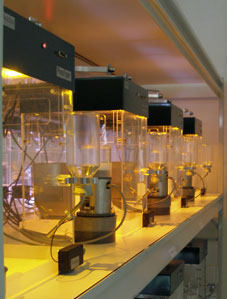

Brain
disorders are recognized as the most expensive and disabling diseases
of the new century. The impact on the quality of life is arguably
larger than for any other class of diseases and the economic burden
of absenteeism and discontinued employability is formidable. Despite
the enormous potential of the world market, pharmaceutical companies
have typically had little success in developing treatments. Our
limited understanding of the human brain and its poor accessibility
for investigation frustrates the analysis of how brain diseases
develop and how such developments may be counteracted. Studies on
rodent model organisms have made crucial contributions to our current
understanding of the brain and can be used to investigate many aspects
of human brain disease. In contrast to humans, brains of model organisms
can be accessed and challenged and we can analyse how diseases develop
and might be treated. Due to the revolution in transgenesis and
biotechnology of the past decades, we are now entering the post-genomics
era in which tens of thousands of mouse mutants will become available.
As many of these mutants are showing brain disorders that mimic
those of humans in terms of both genotype and phenotype, our consortium
has identified this development as an excellent opportunity to create
new directions in studying the human brain and its disorders and
to create significant new economic activities in the biomedical-pharmaceutical
sector.
